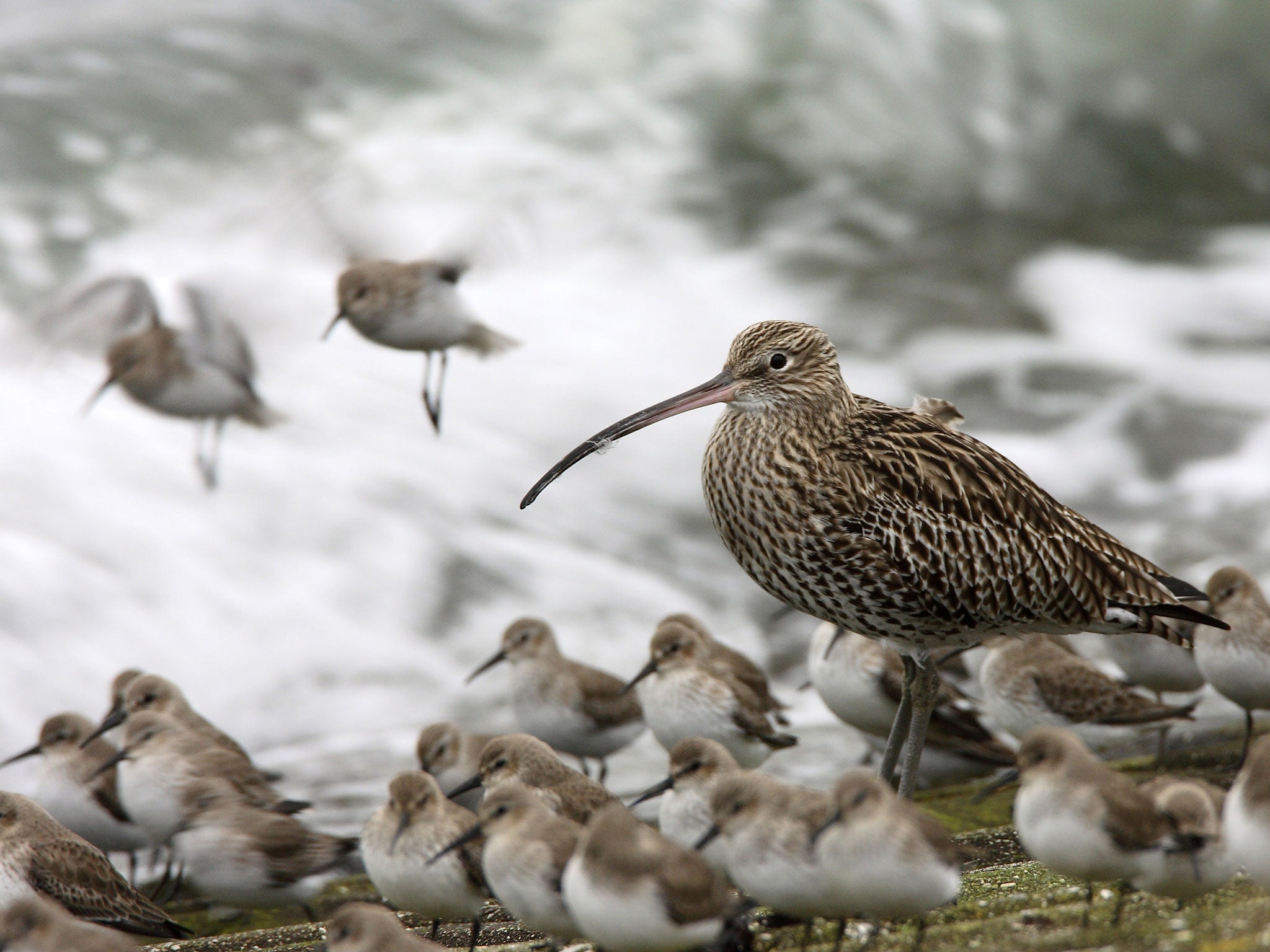Orison for a Curlew: In Search of a Bird on the Edge of Extinction by Horatio Clare, book review
A gem among the growing crop of books on our relationship with endangered birds

As more and more bird species disappear from the planet, new books arrive to take their place: ghost images of passenger pigeons, great auks and dodos nesting on our shelves, memorialised on the rendered pulp of vanished trees.
Horatio Clare, one of our finest travel writers and a keen bird-watcher himself, has already traced the course of one bird's migration from southern Africa to Wales in A Single Swallow. This time, he is funded by a grant from the Royal Geographical Society to follow the slender-billed curlew on a different journey: from being a relatively common, if shy, inhabitant of the planet to being, unofficially at least, extinct. In pursuing Numenius tenuirostris – "of slim beak and the new moon" – he is, he realises soon after setting out, chasing something closer to a rumour or a legend than a living, observable bird.
In its place, he goes in search of the traces left by its passage, in Greece, North Africa, Bulgaria and Romania: in the organisations conservationists and birdwatchers have created in the face of opposition and corruption; in the raised awareness of species fragility the curlew has granted by disappearing in the course of a single human life.
With the hindsight of history, the slender-billed curlew's choice of habitats and migration routes appears suicidal. A love of liminal areas – reed beds, swamps and mud banks – makes it vulnerable to drainage schemes, rising water levels, pollution from pesticides and oil extraction. Its habit of wintering in Egypt means running the gauntlet of gun-toting Italian and Mallorcan sportsmen who delight in blasting migrating birds from the sky.
Arriving in North Africa, exhausted and flying low after crossing the sea, it risks being caught in kilometres of mist nets set up to capture quail and corncrake. Yet even these perils are not enough: its nesting grounds in Siberia were used by the USSR for atmospheric weapons testing. "Thus exists a possibility beyond irony," Clare tells us, "that homo sapiens wiped out Numenius tenuirostris with a nuclear bomb".
A story such as this, however engaging its prose, risks doing little more than adding to the world's store of melancholy, sapping rather than increasing our resolve to make positive change. Instead, Clare finds hope in the grit and vision of the conservationists he meets on his travels. In Sighisoara in Romania, a man tells Clare he is "interested in data-deficient, extra-limital species. The research takes weeks, there is no money in it, but I look at it and I do it! … When species are on such a thin edge, one man's intervention can make a difference".
Another conservationist in Thessaloniki, determined to find the curlew, becomes convinced "the bird [is] behind our backs, laughing at us"; after all, unconfirmed reports of sightings have come in from Oman. "I have a slender-billed curlew ringtone," he tells Clare. "I hear it every day, I hear it when I get a text message, it is imprinted in my brain – I heard it and I thought I received a [text]. And then I realised… the phone was in the car."
Spurred by this message from elsewhere, he returns to the hunt repeatedly without success, as his own country comes perilously close to extinction. When he plays the author the ringtone, its sound somehow captures not just the passing of the curlew, but of Europe itself. "It rises and rises, a burbling ache, a fluted whistle with lament and wildness and defiance in it, a sound… for time gone, for taboos crushed, for mystery, for Greece."
Little Toller Books, £12. Order at £10.80 inc. p&p from the Independent Bookshop
Join our commenting forum
Join thought-provoking conversations, follow other Independent readers and see their replies
Comments